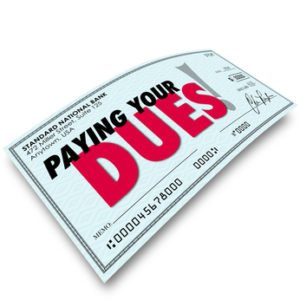Almost every house in the US is under an HOA (Homeowners Association). This association regulates the acts of homeowners in the complex or community. This HOA also consists of homeowners that act as the board.
However, monthly, every house is meant to pay its fees. These fees are used to maintain the amenities, and common areas of the HOA, and to make the area habitable for the occupants. But, why are HOA fees different in the same complex?
HOA fees are different in the same complex because the owners of each apartment are not using the same amenities and common areas. For example, If you are using the swimming pool and tennis courts in your complex, you’ll have to pay for the maintenance. Also, the number of bedrooms also determines the fees you’ll pay.
Table of Contents
What Are HOA Fees All About?
HOA fees are monthly dues paid by homeowners that are part of the association. These fees are used to maintain the amenities and common areas like the lobby, swimming pool, patio, and so on. The rules of the HOA will state what the fees cover.
The fees can also cover utilities like sewage and trash. These fees can be as low as $100 to as high as $1,000. The cost is dependent on the things that are needed to be done in the community.
HOA fees are not the same for all homes in the community. Based on the contract you signed with the HOA, you would pick the amenities you would be using and the ones you wouldn’t use. All these will determine how much you pay monthly.
It is compulsory for occupants or homeowners to pay the HOA fees. You can’t be in an area covered by HOA without paying your HOA fees.
Failure to pay your HOA fees will attract penalties. A lien can be placed on the person’s property or the HOA should file a lawsuit. The penalty is dependent on what is contained in the rules of the HOA.
Can HOA Fees be Different in Same Complex?
Yes, HOA fees can be different in the same complex depending on what you as a house owner signed for. Irrespective of the fact that you and your neigbhor are in the same complex, he/she can be paying more in HOA than you do and the reason for that is discussed below.
Why Are HOA Fees Different in the Same Complex?
HOA fees are different in the same complex because the owners of each apartment are not using the same amenities and common areas.
If you are using the swimming pool and tennis courts in your complex, you’ll have to pay for the maintenance. The cost of maintenance would be added to the flat rate of the HOA fees. The higher the number of amenities and utilities you use, the higher your HOA fees.
Also, the number of bedrooms also determines the fees you’ll pay. If your apartment is a 3 bedroom, you will be using more utilities than the person staying in a 2 bedroom.
Rather than thinking of why your HOA fees are different, take note of all the amenities and common areas you use.
What Are HOA Fees Used for?
HOA fees are mainly used to maintain the amenities and the common areas in the community. The fees cover a lot of things like pest control, maintenance, and repairs, insurance, trash, water and sewage, lawn care, and so on. The CC&RS of your HOA will show things that are covered by the fees.
HOA also covers reserve funds. These funds are deducted from the fees and kept by the HOA for impromptu repairs or renovations.
If the reserve fund can’t cover the cost of the project, then all the homeowners will be mandated to pay special assessments (extra fees) to do the work.
Are HOA Fees the Same for Everyone?
HOA fees aren’t the same for everyone. Size and location determine the cost of HOA fees. If your apartment is larger, the amount for its upkeep can not be the same as the apartment that is smaller.
Also, the HOA in your community determines the cost of the fees based on the cost of maintaining the amenities and services provided. The fees you pay in your community would definitely be different from the ones paid by another community.
Why Are my HOA Fees Higher than my Neighbor?
Check the list of services and amenities you use in the complex or community. The fees you pay for basic amenities are general but the additional things you enjoy will add to the cost. It could be that your neighbor is using more amenities than you do, hence why his/her HOA fees are higher than yours.
The lobby, patio, swimming pool, tennis court, etc need to be maintained. If you are using them, you’ll have to pay for the maintenance.
Also, check if you have the same number of rooms as your neighbor. If the number of your rooms is higher than your neighbor’s, your fees would be higher. Maintaining your apartment will cost more than maintaining the apartment of your neighbor.
Benefits of HOA Fees
Benefits of paying HOA fees are:
1. Savings
When you pay HOA fees, you would be able to save more. Rather than you paying for certain things like insurance, security, landscaping, trash, sewage, etc, it has been added to the HOA fees.
And since many people are paying for these things, the amount you’ll be paying would be lesser. This will enable you to save the money left.
2. Maintenance of Common Areas and Amenities
The cost of maintaining amenities individually is expensive. To maintain a swimming pool or tennis court is expensive. HOA fees are used to maintain those amenities and services. You’ll spend lesser and you will still be able to enjoy the common areas.
3. Landscaping is Made Easy
It is stressful to be trimming trees and working on the lawn every weekend. If you want to hire someone to do it, you’ll be spending more. If you live in a house under an HOA, your lawn would be taken care of.
The cost for maintenance is part of the HOA dues. And you will be paying lesser than if you are paying the company yourself.
Conclusion
HOA fees aren’t general for everyone due to the services enjoyed by each occupant and the size of his/her apartment. Almost every communities have HOA. The rules of each HOA differ even though there are general ones. It is necessary to be familiar with the HOA rules of the community you are moving into. Know what is covered by the association and what is not so that you won’t violate the rules.









